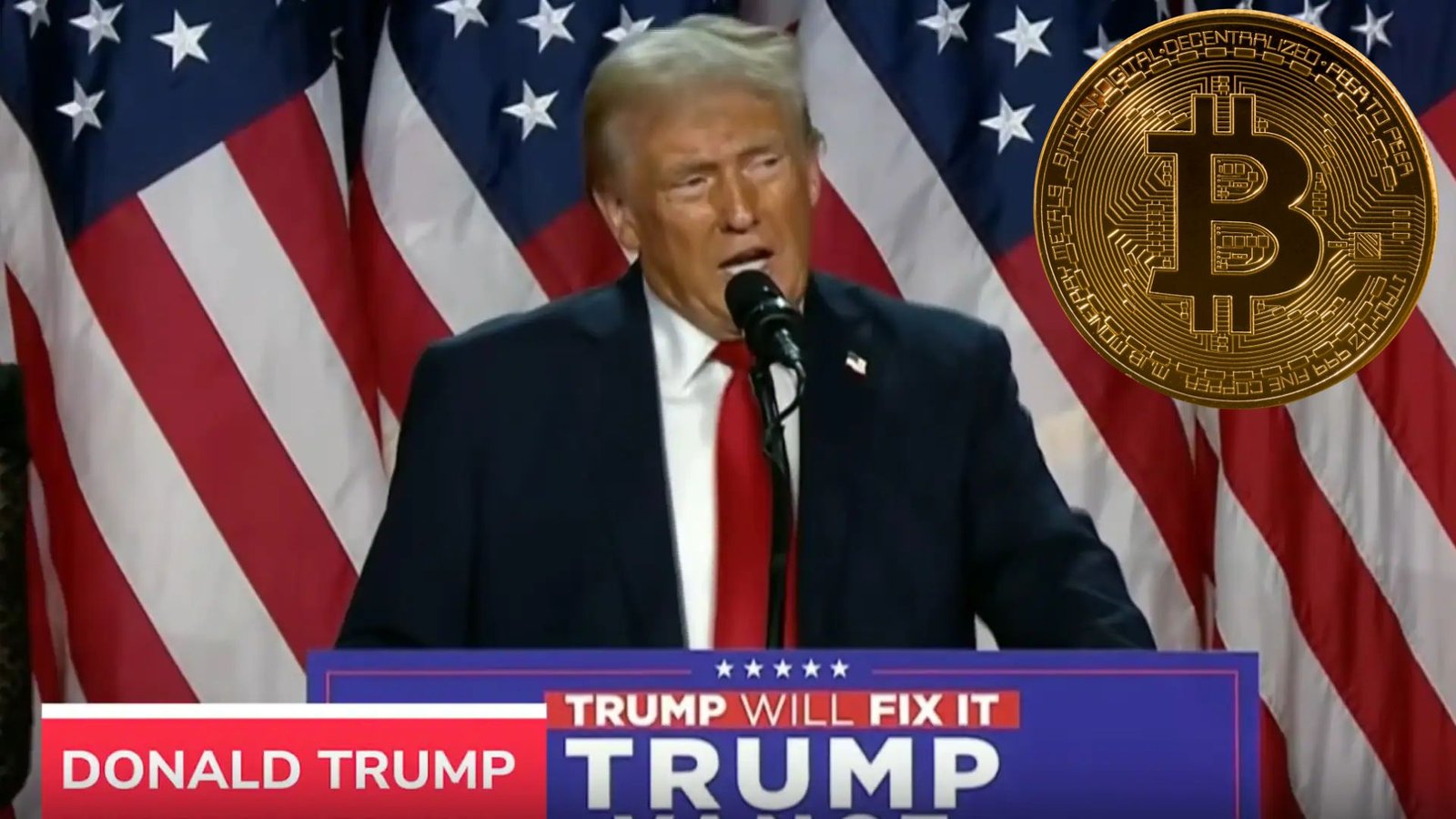The recent U.S. election saw former President Donald Trump reclaim the Oval Office in 2024, a political development that sent ripples through global financial markets. Among the sectors most keenly affected was the cryptocurrency market, with Bitcoin showing remarkable stability and holding steady above the $74,700 mark. For investors, this moment presents a unique opportunity to assess Bitcoin’s role in the evolving landscape of digital assets and the broader potential of blockchain technology. Let’s explore how this political event impacts Bitcoin, and why now might be the time to consider investing.
Trump’s Election Victory and Market Sentiment
Financial markets often respond strongly to major political shifts, and Trump’s election victory was no exception. Historically, Trump’s policies have been market-friendly, with an emphasis on economic growth, deregulation, and tax cuts. In 2020, during Trump’s previous term, Bitcoin saw considerable growth, fueled partly by the broader adoption of cryptocurrencies and a flight to decentralized assets amid economic uncertainty. Trump’s return has brought renewed focus on fostering an environment that supports financial freedom and reduced government intervention—both of which play in favor of decentralized financial assets like Bitcoin.
The immediate market reaction following the election results was one of cautious optimism. Bitcoin’s ability to hold steady above $74,700—a significant psychological level—demonstrates investor confidence in digital assets as a hedge against potential volatility in traditional markets. It is worth noting that Bitcoin is increasingly seen as a “safe haven” asset, akin to gold, during periods of geopolitical or economic uncertainty. The renewed leadership of Trump is perceived by some as a potential catalyst for economic unpredictability, thereby driving more interest in Bitcoin as a store of value.
The Investment Perspective: Why Bitcoin Holds Promise
From an investment standpoint, Bitcoin’s stability in the face of significant political news is a strong indicator of its maturing market dynamics. Several factors make Bitcoin an attractive investment option in this context:
- Inflation Hedge: Throughout his campaign, Trump expressed intentions to further stimulate the U.S. economy, which could lead to increased government spending. With rising fiscal stimulus, inflationary pressures may also grow, potentially reducing the value of fiat currencies. Bitcoin, with its fixed supply of 21 million coins, serves as a hedge against inflation. Investors looking for a way to protect their wealth against the depreciation of traditional currencies may find Bitcoin particularly appealing.
- Increased Institutional Adoption: Compared to previous election cycles, Bitcoin has garnered substantial support from institutional investors. Major financial institutions and corporations have increasingly integrated Bitcoin into their portfolios, lending the asset credibility and creating more liquidity in the market. Trump’s presidency could spur even more financial deregulation, making it easier for institutional investors to enter the cryptocurrency space, thus boosting Bitcoin’s value further.
- Regulatory Landscape: While Trump has had a mixed relationship with cryptocurrencies in the past, his administration has historically supported deregulation and financial innovation. Analysts expect that, under his leadership, the U.S. could adopt a more favorable stance towards cryptocurrencies, encouraging innovation in the blockchain space. A regulatory environment that provides clarity without stifling growth could help Bitcoin and other cryptocurrencies flourish, creating more investment opportunities.
- Blockchain as an Emerging Technology: Beyond just Bitcoin, blockchain technology—the underlying infrastructure that powers cryptocurrencies—holds tremendous potential for growth. A pro-business administration could push for blockchain innovation in sectors ranging from finance to supply chain management. Investing in Bitcoin today isn’t just about holding a cryptocurrency; it’s about investing in the broader technological revolution that blockchain represents.
Bitcoin as a Long-Term Investment Opportunity
Bitcoin’s resilience in the face of major political events underlines its appeal as a long-term investment. Since its inception, Bitcoin has often been compared to gold—earning the moniker “digital gold” due to its scarcity and utility as a store of value. With Trump’s election signaling potential policy shifts that may unsettle traditional financial markets, Bitcoin stands out as an asset with the potential to provide stability and diversification for investors.
Moreover, the integration of Bitcoin into mainstream financial services continues to gain momentum. With more options for custody, derivatives, and ETF-like products, Bitcoin is becoming an easier investment for both institutional and retail investors. This increased accessibility means more people can participate in the Bitcoin ecosystem, potentially driving demand and prices higher.
Why Now Might Be the Right Time to Invest in Blockchain
Trump’s election victory and its impact on Bitcoin are a reminder of the inherent volatility of traditional markets, which are often at the mercy of geopolitical shifts. Blockchain technology, on the other hand, offers a decentralized and transparent alternative that reduces reliance on central authorities. For investors, this represents an opportunity to support a technology that could fundamentally transform numerous industries—from finance and healthcare to real estate and logistics.
Investing in Bitcoin today isn’t just about speculation. It is about being part of a financial revolution that prioritizes transparency, security, and decentralization. The current political climate, with its potential for economic shifts, could be an ideal environment to explore blockchain investments. Bitcoin’s stability above $74,700 is a testament to the strength of the cryptocurrency market, even amidst major political changes, and points towards the promising future of digital assets.
Conclusion: Seize the Opportunity
In the aftermath of Trump’s 2024 election victory, Bitcoin’s steadiness at $74,700 sends a clear message: cryptocurrencies are becoming an integral part of the global financial ecosystem. For investors, this presents a unique opportunity to diversify portfolios and invest in the future of finance. Bitcoin’s resilience, the favorable regulatory outlook, and the growth of blockchain technology all contribute to making this an exciting moment for those looking to get involved.










